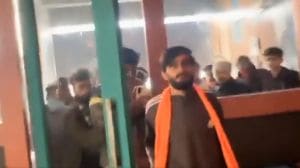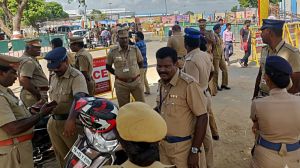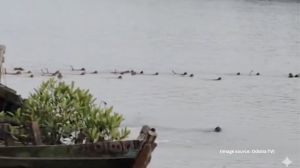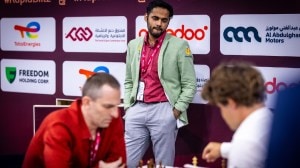Pall over peace
The murder of a journalist after his kidnapping by the Maoists, now the second largest party in Nepal8217;s interim government...

The murder of a journalist after his kidnapping by the Maoists, now the second largest party in Nepal8217;s interim government, has once again brought the erstwhile rebels8217; pro-peace credentials into question. The journalist, Birendra Saha, of Avenues Television network, was called by the clandestinely operating head of the people8217;s government to his house in Bara district, detained, and killed the same day. His death was confirmed a month later by the Maoist leadership, who claimed that it was carried out by their local unit without the endorsement of the centre. The cold-blooded murder by the Maoists and its top leadership8217;s refusal to apologise for it injects fresh fear among journalists, as it happened during the peace process, and this despite the Maoists8217; rhetorical commitment to freedom of the press.
This incident has larger political ramifications. The government knows the survival and sustainability of the ongoing peace process depends on Maoists8217; support, who exploit this situation to the hilt. That8217;s why the G.P. Koirala government deliberately suppressed information about Saha8217;s murder when Parliament was in session 8212; for more than three weeks. Koirala skipped the deadline he had given to the Federation of Nepalese Journalists FNJ to make Saha8217;s whereabouts known. Even the police department waited till the House was adjourned to send a pair of sniffer dogs from Kathmandu to Bara, about 200-km away, to detect the site where Saha8217;s body was buried. It was with the help of these dogs that the body was exhumed and identified.
Nepal is perhaps the richest country in South Asia in terms of the number of human rights groups. But their criticism of the incident was only a formality.
Birendra Saha8217;s murder in peace time by a party that is involved in the peace process shows that Nepal remains as dangerous a country for journalists as it was in the years of conflict. Two, the common slogan of the ruling political coalition 8212; that consists of only seven political parties 8212; and that of the influential human rights groups to end the culture of impunity means little, as there is a new group replacing the old one which will be above the reach of the law. All this indicates that the repeated postponement of polls to the constituent assembly has a pattern. Such a postponement will enable the present government and the ruling coalition to continue in power without any accountability. All that they look forward to is international support. There are also fears being expressed among a section of the people as well as academics that the United Nations Mission in Nepal 8212; UNMIN 8212; has failed to prove its effectiveness on the mandate it received 8212; management of government, army and Maoist guerrillas, and to observe elections. UNMIN now wants an enlarged jurisdiction for itself, but the local sentiment is clearly against it.
For more than 16 months now, the seven parties have not only monopolised government, but have also had absolute control over the peace and political process. The international community which in principle strongly advocates 8216;inclusive democracy8217;, maintains silence over the exclusion of forces outside the group of seven. Their ritualistic condemnation of journalist Saha8217;s murder was just a case in point. As frustration grows among the Nepalis, their ire seems directed against the international community as well for this visible dual standard. The emerging lesson for Nepal is: sustainable democracy and peace in the country cannot be achieved without independent, active and committed local actors; the international community8217;s role can only be secondary.
- 01
- 02
- 03
- 04
- 05































